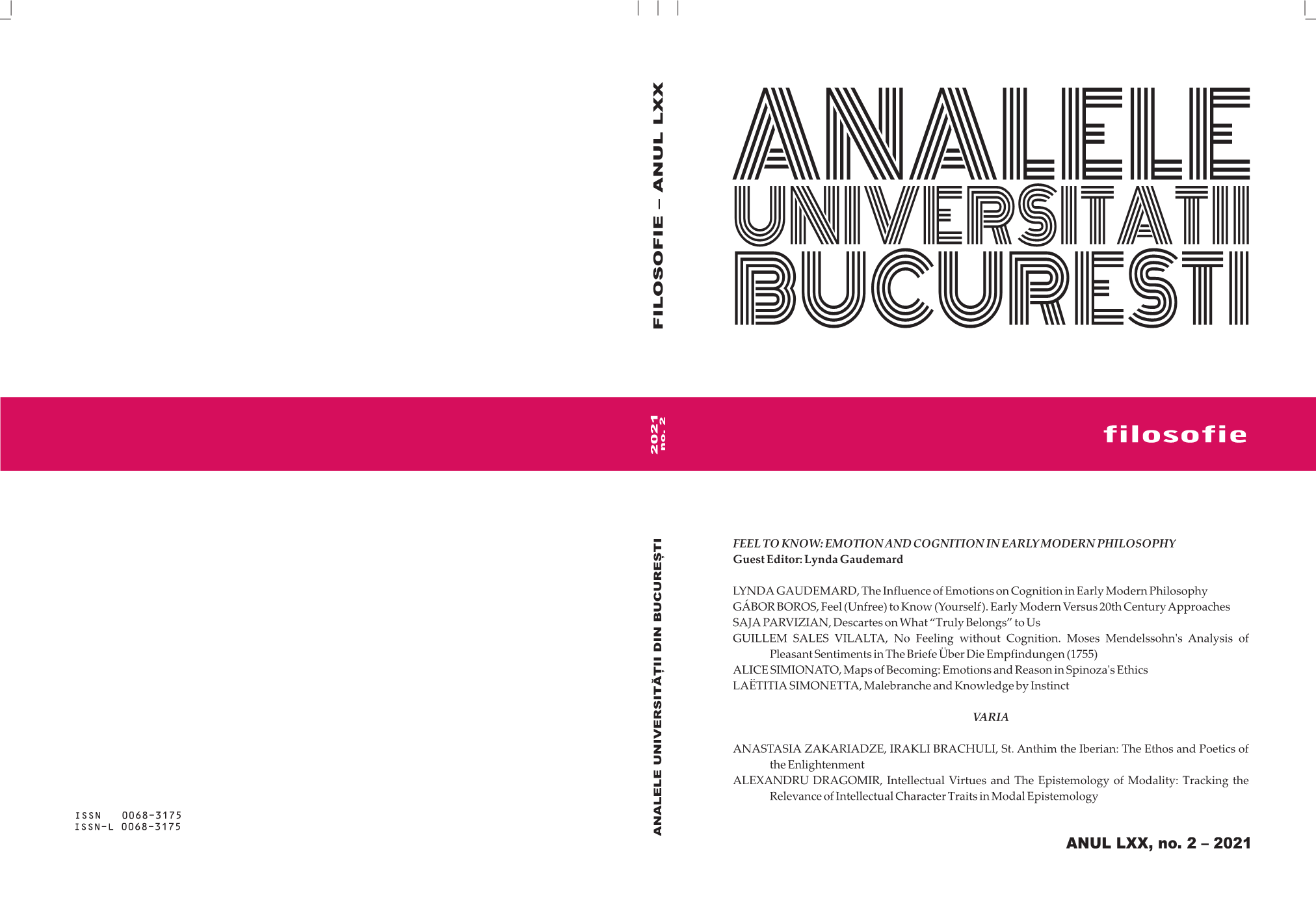Feel (Unfree) to Know (Yourself). Early Modern versus 20th Century Approach
Feel (Unfree) to Know (Yourself). Early Modern versus 20th Century Approach
Author(s): Gábor BorosSubject(s): Philosophy, Ethics / Practical Philosophy, Early Modern Philosophy, Philosophy of Mind
Published by: Editura Universităţii din Bucureşti
Keywords: Augustin; Pascal, Descartes; Malebranche; Damasio; Heidegger; Sartre; love of God; being-in-the-world; somatic marker;
Summary/Abstract: This paper will tackle, first, the history of the “original stance” in the history of European philosophy, in which feelings had to be subordinated to reason-based knowledge. Afterwards I will have a first look at 20th century phenomenology and neuro-sciences in order to show the apparition and prevalence of the new stance expressed by the imperative “Feel to know”. I will, then, return to Descartes pointing out his ambivalent role in this history: he provided us with a complex theory of love on the one hand whereas, on the other, he introduced the en Physicien intention in the theory of passions that rendered him the forerunner of contemporary neuro-scientists (pace the “erroneous” Damasio), and the protagonist of the philosophies of life from Dilthey to Michel Henry. Involving Pascal and Malebranche will enrich the picture before the second look at the phenomenologists’ and the scientists’ attitudes to Descartes and the problems of emotions.
Journal: Analele Universității din București – Seria Filosofie
- Issue Year: 70/2021
- Issue No: 2
- Page Range: 9-25
- Page Count: 18
- Language: English

